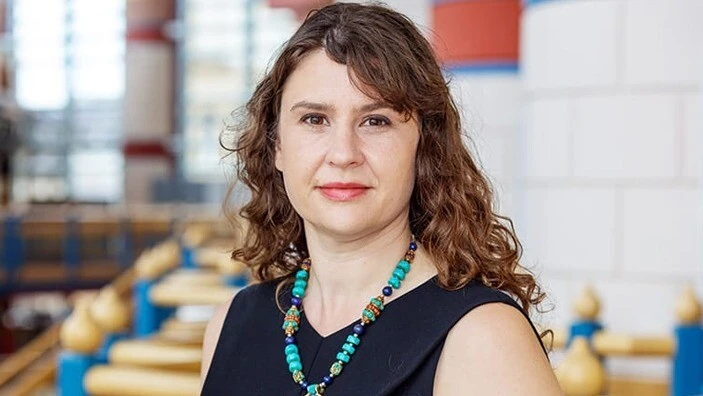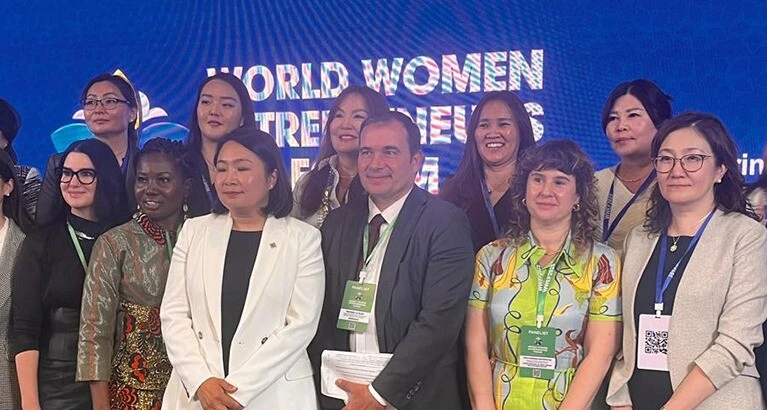Management Practice Associate Professor
Director of the MSt in Entrepreneurship programme
BA, MA (University of Nottingham), PhD (University of Cambridge)
My research centres on entrepreneurship, with particular emphasis on early-stage venture formation, startup strategy development, experimentation and pivoting, gender dynamics, entrepreneurial impact, and the use of sociological frameworks to deepen our understanding of entrepreneurial activity. I am especially driven by the potential for research to enhance the design and effectiveness of entrepreneurship education, to empower the next generation of entrepreneurs.

Professional experience
Research employs sociological approaches to deepen our understanding of entrepreneurial activity, with a particular focus on experimentation, pivoting, strategy formation, early-stage venture strategy, gender and diversity, and entrepreneurial impact.
She has led and collaborated on numerous research initiatives, including the EVER project on early-stage venture strategy. She has also led several research initiatives focussed on understanding the impact of entrepreneurship education, including a collaboration exploring Arab youth career self-efficacy, and EU-funded projects, which focussed on the design and delivery of a tool to measure the impact of entrepreneurship education. She has also contributed and advised on policy on entrepreneurship, entrepreneurship education and women entrepreneurship in multiple countries, and supported startups across multiple industries.
Monique has a PhD from the University of Cambridge and her thesis focused on applying philosophy to archaeology to look at the nature of knowledge creation of the past.
Alongside being the Director of the Masters in Entrepreneurship and supervising multiple students, Monique currently teaches across several Cambridge Judge Business School programmes, including the following modules: Experimentation and Pivoting, Entrepreneurial Impact (ethics and diversity), and Management Praxis.
Selected publications
- Boddington, M. (2024) “Reshaping gendered norms in entrepreneurship: incorporating gender identity and entrepreneurial practice.” Gender, Work and Organization, 31(2): 378-398 (DOI: 10.1111/gwao.13075)
- Yousafzai, S., Henry, C., Boddington, M., Sheikh, S. and Fayolle, A. (2022) Research handbook of women’s entrepreneurship and value creation. Cheltenham: Edward Elgar.
- Boddington, M. and Kavadias, S. (2018) “Entrepreneurial pivoting as organizational search: defining pivoting in early stage ventures.” Academy of Management Proceedings, 2018(1): 12065 (DOI: 10.5465/AMBPP.2018.12065abstract)
- Boddington, M. and Barakat, S. (2018) “Exploring alternative gendered social structures within entrepreneurship education: notes from a women’s-only enterprise programme in the United Kingdom.” In: Yousafzai, S., Fayolle, A., Lindgreen, A., Henry, C., Saeed, S. and Sheikh, S. (eds.) Women entrepreneurs and the myth of ‘underperformance’: a new look at women’s entrepreneurship research. Cheltenham: Edward Elgar, pp.141-158 (DOI: 10.4337/9781786434500.00020)
- Boddington, M.I. (2016) “‘Boys’ things and girls’ things’: understanding the gendered order of entrepreneurial practice.” Academy of Management Proceedings, 2016(1): 13960 (DOI: 10.5465/ambpp.2016.13960abstract)
- Boddington, M. and Barakat, S. (2015) “Entrepreneurial self-efficacy as a measurement of entrepreneurship education: understanding programme affects and demographic variability.” Frontiers of Entrepreneurship Research, 35(16): 7
- Barakat, S., Boddington, M. and Vyakarnam, S. (2014) “Measuring entrepreneurial self-efficacy to understand the impact of creative activities for learning innovation.” International Journal of Management Education, 12(3): 456-468 (DOI: 10.1016/j.ijme.2014.05.007)
News and insight
AI and technology
A look ahead at 2026: predictions and hopes
As 2026 begins, Cambridge Judge Business School faculty offer their thoughts on such topics as the innovative role of business schools, how science fiction can inform the future and the hype and reality of AI.
ESG and sustainability
Can business reset for climate goals, 10 years on?
A decade on from the Paris Agreement, the deepening climate crisis makes business action more critical than ever. Drawing on insights from Cambridge Judge Business School academics, this article highlights practical solutions and systemic changes needed to align business practices with sustainability and drive meaningful progress.
At the World Women Entrepreneurs Forum in Mongolia, Jennifer Waller Martin and Monique Boddington of Cambridge Judge Business School explain how we need to challenge the norms that decide who is seen as fundable, while investors and policymakers must rethink how entrepreneurship is valued and financed.




